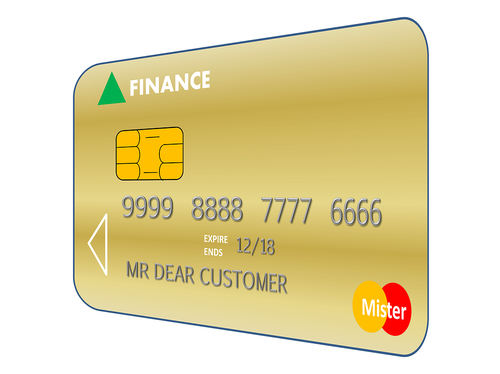
CREDIT CARD FOR BAD CREDIT
 If you're hoping to borrow money for a house, car, or other personal reason, chances are you already know that your credit score will be a taken into consideration. Whether you're unsure of what a credit score really is, or you get a bad feeling in your stomach every time someone mentions the word “credit,” it is important to understand what a credit score is comprised of, what it means, and how to improve it.
If you're hoping to borrow money for a house, car, or other personal reason, chances are you already know that your credit score will be a taken into consideration. Whether you're unsure of what a credit score really is, or you get a bad feeling in your stomach every time someone mentions the word “credit,” it is important to understand what a credit score is comprised of, what it means, and how to improve it.
Why Is My Credit Bad?
FICO credit scores are calculated based on five different credit factor categories.
Payment History- Payment history has the biggest impact of the five categories on your credit score at 35%. This factors in your history of paying credit cards, installment loans, and mortgage loans on time. Bankruptcies, foreclosures, liens, and judgments are also included in this portion of your credit score.
Amounts Owed-This is also a key factor in your credit score, determining 30%. Credit utilization, which is the percentage of available credit you're using, is important when it comes to your credit score. Having credit cards close to the limit or maxed out will negatively impact your credit score.
Length of Credit History-This has less of an impact on your score at only 15%. This category considers the length of your oldest account, and averages the age of all credit accounts open.
Credit Mix-The mix of types of accounts you currently have open, such as credit cards, installment loans, and retail accounts, will determine 10% of your credit score.
New Credit-For people without a long credit history, opening several cards in a short period of time usually means a higher risk. This factor makes up 10% of your credit score.
Effects of Poor Credit Scores
Individuals with poor credit scores are viewed as a risk to lenders. Because of this, often people with bad credit will not be approved for credit and loan applications, and if they are approved, they will pay higher interest rates on they money they borrow.
Not only do creditors check your credit report, but most utility companies, such as electricity, phone, cable, and cell phone providers, do as well. Though you will typically still be able to get these services, these utility companies will usually require a security deposit to be paid up front before service begins.
Though you may think that your credit score only affects your ability to lend money and establish accounts, it can also impact other areas of your life. Often times potential employers will check your credit report to look for high amounts of debts and bankruptcy,
particularly for employment opportunities in the financial industry. Some landlords even check credit before allowing tenants to rent from them.
How Can Your Credit Be Fixed?
Are there credit cards for bad credit? The first step in fixing your credit is to change your bad credit habits. Avoid missing payments by setting up automatic payments or reminders. Keep your balance low, preferably less than 30%, of your credit limit on your credit cards. Avoid applying for and opening multiple new accounts at one time if not necessary.
Another way to improve your credit is to get a secured card designed as credit cards for bad credit. These credit cards require a cash deposit that will serve as collateral, and you can charge up to the amount of your deposit. Most issuers of secured credit cards report to the credit bureaus.
Reviewing your credit report is also essential to improving your credit score. Individuals are eligible to get a free copy of their credit report once a year from all three credit bureaus. These reports should be carefully reviewed for accuracy. If you find any incorrect information on your credit report, you can dispute it with your creditor or directly with the credit bureau.
Your credit score is important, and dealing with creditors can be overwhelming and scary. Often, the best solution is hiring a financial lawyer to assist you in filing disputes for information on your credit report, and finding other solutions to improving your credit score.